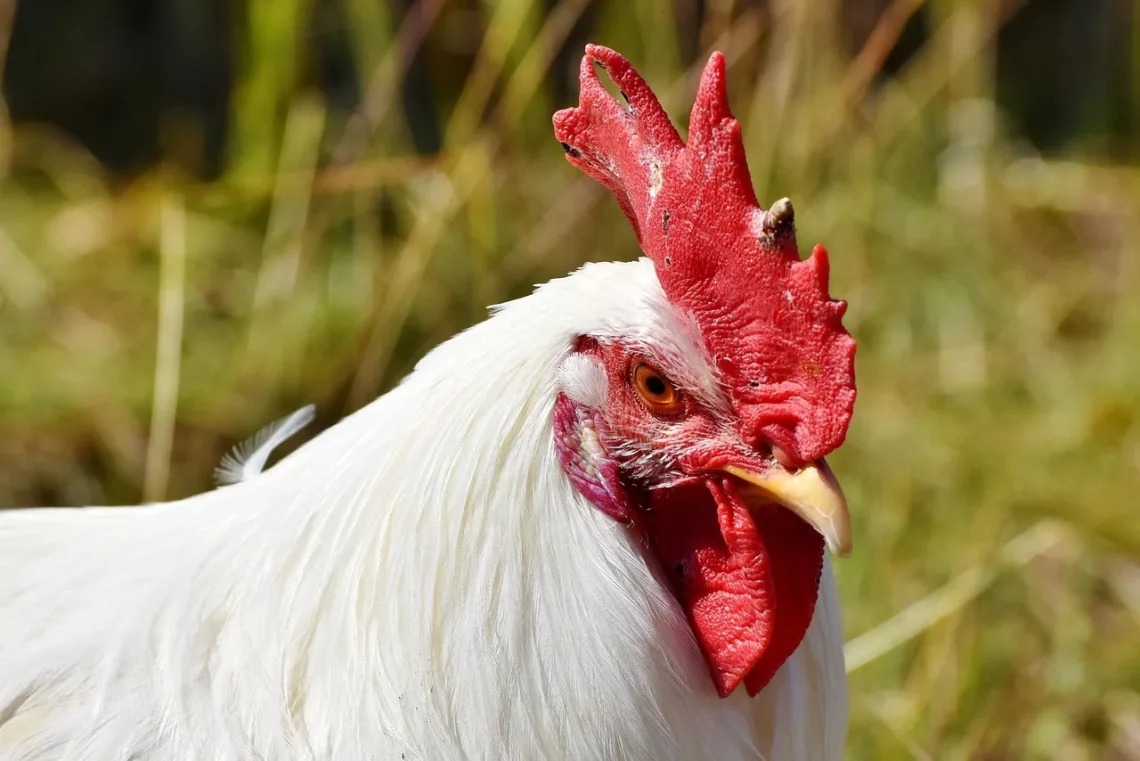
Can I Have Chickens in My Backyard: A Guide to Urban Poultry Keeping
Keeping chickens in your backyard has become an increasingly popular trend among urban dwellers seeking a sustainable lifestyle. The notion of having fresh eggs at your disposal, along with the companionship of these charming birds, has captivated the hearts of many city residents. Backyard poultry keeping is not only a means of producing food but also an opportunity to reconnect with nature amidst the hustle and bustle of urban life.
As people become more aware of the benefits of locally sourced food, chicken keeping offers a practical solution. Chickens are relatively easy to care for and can thrive in small spaces, making them an ideal choice for those living in urban environments. Furthermore, they can help reduce household waste by consuming kitchen scraps, contributing to a more sustainable lifestyle.
However, raising chickens in a city setting comes with its own set of challenges and responsibilities. Urban poultry keepers must navigate local regulations, space limitations, and the overall well-being of their feathered friends. Understanding the basics of chicken care, the necessary housing requirements, and the potential impact on neighbors is crucial for success. This guide will explore the various aspects of keeping chickens in your backyard, ensuring you are well-equipped to embark on this rewarding venture.
Understanding Local Regulations
Before you decide to bring chickens into your urban backyard, it is essential to familiarize yourself with local regulations. Many cities have specific laws regarding the keeping of poultry, which can vary significantly from one place to another. Some municipalities may have strict guidelines on the number of chickens allowed, the type of housing required, and even the breeds permitted.
Start by checking with your local government or zoning office to understand the rules that apply to your area. In some cities, permits may be required to raise chickens, while others may prohibit them altogether. Understanding these regulations is crucial to avoid fines or the potential loss of your animals.
In addition to city regulations, it’s also wise to consider any homeowners’ association (HOA) rules that may apply in your neighborhood. Some HOAs have restrictions on farm animals, including chickens, which could impact your ability to keep them. If you live in a community governed by an HOA, be sure to review their bylaws before proceeding.
Engaging with your neighbors is another important step in this process. Open communication can help alleviate concerns they may have about noise or odors associated with chicken keeping. Many urban chicken keepers find that sharing their plans with neighbors fosters goodwill and even generates interest in their new hobby.
Lastly, be mindful of any potential changes in local legislation. Urban farming trends are growing, and regulations can change as cities adapt to the increasing popularity of backyard poultry. Staying informed will help you make educated decisions and ensure your chicken-keeping venture remains compliant and enjoyable.
Choosing the Right Chicken Breeds
Selecting the right breed of chicken is a vital step in ensuring a successful urban poultry experience. Different breeds come with various characteristics, including size, temperament, and egg production, which can impact your overall enjoyment and the care required.
For beginners, breeds like the Rhode Island Red, Sussex, and Leghorn are often recommended due to their hardiness and prolific egg-laying abilities. Rhode Island Reds are known for their friendly nature and adaptability, making them a great choice for families. Sussex chickens are not only good layers but also friendly and easy to handle, while Leghorns are known for their high egg production.
If you are looking for a more ornamental addition to your flock, consider breeds such as the Silkie or Polish chicken. Silkies have a unique appearance with their fluffy feathers and are generally calm and friendly. Polish chickens, with their distinctive crest of feathers, are also friendly but require a bit more attention due to their feathered heads, which can obstruct their vision.
It’s essential to consider your living situation when choosing breeds. If you have limited space, smaller breeds like Bantams may be more suitable. Bantams are miniature chickens that require less space and can still produce eggs, albeit in smaller quantities.
Additionally, consider the noise level of the breeds you are interested in. Some chickens are quieter than others, which can be a significant factor in urban settings where noise ordinances may apply. Hens are generally quieter than roosters, so if you’re concerned about noise, it’s advisable to keep only hens.
Finally, be sure to purchase your chickens from reputable breeders or hatcheries. This ensures that you receive healthy birds free from diseases, setting you up for a successful poultry-keeping experience.
Building a Suitable Chicken Coop
A well-constructed chicken coop is essential for the health and happiness of your flock. The coop not only provides shelter from the elements but also protects your chickens from predators. When designing or purchasing a coop, several factors should be taken into account, including size, ventilation, and security.
The size of your coop will depend on the number of chickens you plan to keep. A general rule of thumb is to provide at least 4 square feet of space per hen inside the coop. This space allows your chickens to move around comfortably, reducing stress and promoting good health. If you plan to let your chickens roam outside, ensure you have a secure run area as well.
Ventilation is another critical aspect of coop design. Proper airflow helps prevent the buildup of moisture and ammonia, which can cause respiratory issues in chickens. Incorporate windows or vents that can be opened and closed as needed to regulate air quality and temperature.
Security is paramount when it comes to protecting your flock from predators. Make sure your coop is fortified with sturdy materials that can withstand attempts from raccoons, foxes, and other potential threats. Use hardware cloth instead of chicken wire, as it is more durable and provides better protection. Ensure that doors and windows can be securely locked to prevent unwanted intrusions.
Additionally, consider the interior layout of the coop. Provide nesting boxes for egg-laying, perches for roosting, and adequate bedding for comfort. Nesting boxes should be placed in a quiet, dark area of the coop to encourage hens to lay eggs.
Lastly, practice regular maintenance to keep the coop clean and sanitary. Regularly remove waste and replace bedding to promote a healthy environment for your chickens. A clean coop will not only keep your chickens happy but also reduce the likelihood of pests and diseases.
Feeding and Caring for Your Chickens
Proper nutrition and care are crucial for the health and productivity of your backyard chickens. A balanced diet ensures that your hens remain healthy, produce eggs consistently, and maintain their energy levels.
Commercial layer feed is typically the best choice for adult hens, as it is formulated to meet their specific nutritional needs. This feed contains essential vitamins, minerals, and protein to support egg production. You can supplement their diet with kitchen scraps, such as vegetable peels and grains, but avoid feeding them anything toxic or harmful, such as chocolate, onions, or citrus fruits.
In addition to feed, fresh water is vital. Chickens need access to clean drinking water at all times. Change their water daily to prevent contamination and ensure they stay hydrated, especially during hot weather.
Regular health checks should also be part of your chicken care routine. Monitor your flock for signs of illness, such as lethargy, changes in appetite, or abnormal droppings. If you notice any concerning symptoms, consult a veterinarian who specializes in poultry.
Social interaction is important for chickens as they are flock animals. Spend time with your chickens to help them become accustomed to human interaction. This can also help reduce stress and promote a more peaceful environment within the flock.
Lastly, ensure that your chickens are protected from extreme weather conditions. In cold climates, provide insulation and heat sources, while in hot weather, ensure there is adequate shade and ventilation in the coop and run.
By focusing on proper nutrition, health monitoring, and social interaction, you can create a thriving environment for your backyard chickens, ensuring they remain happy and productive members of your urban homestead.
In conclusion, keeping chickens in your backyard can be a fulfilling and rewarding endeavor. By understanding local regulations, choosing the right breeds, building a suitable coop, and providing proper care, you can enjoy the many benefits of urban poultry keeping. Remember that your commitment to their well-being will directly impact the happiness of your flock and the quality of the eggs they produce. Embrace this opportunity to connect with nature and enjoy the fruits of your labor right in your own backyard.




